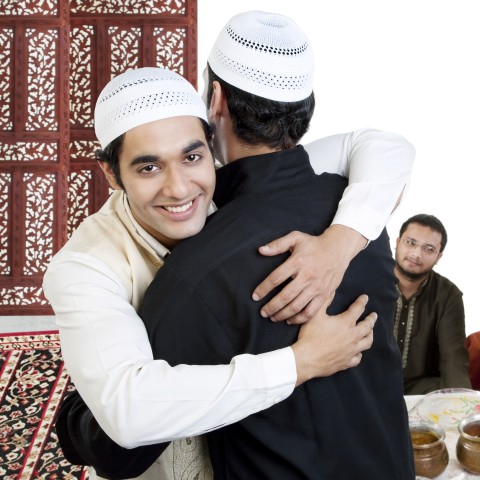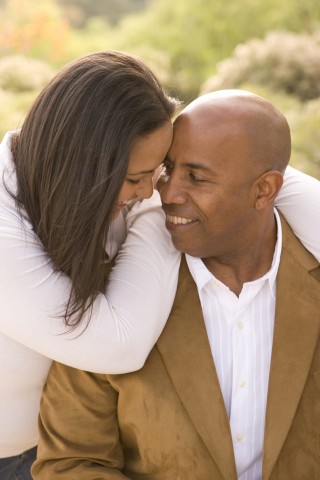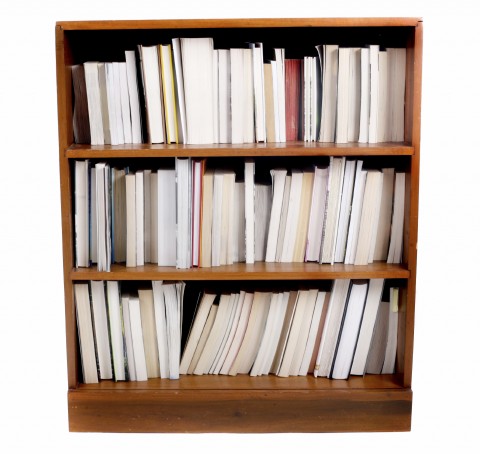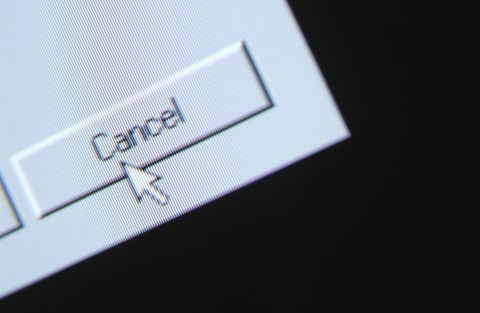
You may have encountered the statistic that more than 90 percent of our communication is based on body language.
While the accuracy of this number is debatable, it’s not far-fetched.
Body language and other subtle communication cues allow us to think less about what to say and make conversations easier.
But what about…the dreaded phone call?
When you get a sudden call from a delivery guy, an unknown number, or even an old friend, you probably hesitate to pick up. Normally, the call goes smoothly—unless the caller starts talking in Arabic and you remember that you’re in an Arabic-speaking country.
That’s where learning some Arabic phone call phrases will come in handy for you.
Below, we’ve compiled a list of more than 30 phrases, with two bonus examples at the end to familiarize you with Arabic telephone conversations.
Note that the following phrases are all in MSA (Modern Standard Arabic). MSA is mostly used in official contexts, but most highly educated native speakers can understand it, and you can use it to communicate with them.
 Table of Contents
Table of Contents
- Picking up the Phone
- Saying Who You Are
- Stating the Reason for the Call
- Asking to Speak to Someone
- Asking Someone to Wait
- Leaving a Message
- Asking for Clarification
- Ending the Phone Call
- Sample Arabic Phone Conversations
- Conclusion
1. Picking up the Phone

أَهلاً
ahlan
Hey
مَرحَباً
marḥaban
Hello
أَهلاً وسَهلاً
ahlan wasahlan
Hello and welcome
مَن مَعي؟
man maʿī?
Who’s with me?
For more ways to say hello in Arabic, check out our extended list of expressions here.
2. Saying Who You Are

مَعَك (اِسم)
maʿak (ism)
This is [name].
مَعَك (اِسم) مِن شَرِكَةِ (اسم الشَرِكَة)
maʿak (ism) min šarikaẗi (ism al-šarikah)
This is [name] from [company].
3. Stating the Reason for the Call
أَنا أَتَّصِل لِأَسأَل…
ʾanā ʾattaṣil liʾasʾal…
I’m calling to ask…
أَنا أَتَّصِل لِأَتَأَكَّد مِن…
ʾanā ʾattaṣil liʾataʾakkad min…
I’m calling to confirm…
أَنا أَتَّصِل لِأَحجِز…
ʾanā ʾattaṣil liʾaḥǧiz…
I’m calling to make a reservation for…
أُريدُ أَن أَتَكَلَّمَ مَع أَحَدِهِم بِخُصوص…
ʾurīdu ʾan ʾatakallama maʿ ʾaḥadihim biḫuṣūṣ…
I’d like to speak to someone about…
أَنا أُعيدُ الاِتِّصال بِك.
ʾanā ʾuʿīdu al-ittiṣali bik.
I’m returning your call.
4. Asking to Speak to Someone

هَل يُمكِنُ أَن أَتَحَدَّثَ مَع…؟
hal yumkinu ʾan ʾataḥaddaṯa maʿ…?
May I speak to…?
هَل (اِسم) هُنا؟
hal (ism) hunā?
Is [name] there?
5. Asking Someone to Wait
دَقيقَة، دَعني أَتَحَقَّقُ مِن ذَلِك.
daqīqah, daʿnī ʾataḥaqqaqu min ḏalik.
Just a moment, let me check.
سَأَضَعُكَ عَلى الاِنتِظار لِثانِيَة.
saʾaḍaʿuka ʿalā al-intiẓār liṯāniyah.
I’ll put you on hold for a second.
دَعني أَصِلُكَ بِمَكتَبِه، اِبقَ عَلى الخَط رَجاءً.
daʿnī ʾaṣiluka bimaktabih, ibqa ʿalā al-ḫaṭ raǧāʾan.
Let me transfer you to his office. Stay on the line, please.
6. Leaving a Message

اَخبِرهُ مِن فَضلِك.
aḫbirhu min faḍlik.
Please let him know…
هَل يُمكِنُني أَن أَترُكَ رِسالَة؟
hal yumkinunī ʾan ʾatruka risalah?
Can I leave a message?
هَل يُمكِنُكَ أَن تُخبِرَهُ بِأَن يَتَّصِلَ بي مُجَدَّداً عَلى (رَقمِ الهاتِف)؟
hal yumkinuka ʾan tuḫbirahu biʾan yattaṣila bī muǧaddadan ʿalā (raqmi al-hātif)?
Can you tell him to call me back at [phone number]?
7. Asking for Clarification
عَفواً، هَل يُمكِنُكَ قَوْل ذَلِك مُجَدَّداً؟
ʿafwan, hal yumkinuka qawl ḏalik muǧaddadan?
Sorry, could you say that again?
صَوْتُكَ بَعيد.
ṣawtuka baʿīd.
Your voice is far.
هَل تَسمَعُني جَيِّداً؟
hal tasmaʿunī ǧayyidan?
Can you hear me clearly?
عَفواً، وَلَكِن أُواجِهُ مُشكِلَة في سَماعِك، أَظُنُّ أَنَّ هُناكَ مَشاكِل في الشَبَكَة.
ʿafwan, walakin ʾuwaǧihu muškilah fī samāʿik, ʾaẓunnu ʾanna hunāka mašākil fil-šabakah.
I’m sorry, but I’m having a problem hearing you. I think there are problems with the network.
هَل يُمكِنُكَ تَهَجّي اِسمَكَ مِن فَضلِك؟
hal yumkinuka tahaǧǧī ismaka min faḍlik?
Could you spell your name for me, please?
فَقَط لِلتَحَقُّقِ مَرَّةً ثانِيَة…
faqaṭ liltaḥaqquqi marraẗan ṯāniyah…
Just to double check…
8. Ending the Phone Call

هَل هُناكَ شَيءٌ آخَر تَحتاجُ المُساعَدَةَ فيه؟
hal hunāka šaīʾun ʾāḫar taḥtāǧu al-musāʿadaẗa fīh?
Any other thing I can help with?
أَيُّ خِدمَةٍ أُخرى؟
ʾayyu ḫidmaẗin ʾuḫrā?
Anything else?
لَقَد كُنتَ مُفيداً جِدّاً. شُكراً جَزيلاً.
laqad kunta mufīdan ǧiddan. šukran ǧazīlan.
You’ve been very helpful. Thank you.
أَراكَ عِندَ ماكدونالدز يَوم الثُلاثاء.
ʾarāka ʿinda mākdonaldz yawm al-ṯulāṯāʾ.
See you at McDonald’s on Tuesday.
أَتَمَنّى لَكَ يَوْماً جَميلاً.
ʾatamannā laka yawman ǧamīlan.
Have a great day.
9. Sample Arabic Phone Conversations
To give you a better idea of what a phone call in Arabic might sound like, here are two conversation examples (informal and formal contexts, respectively).
1. Informal phone conversation
Two friends (Ahmed and Walid) are setting up a time to meet for lunch on a weekend at a local restaurant in Dubai. Here’s a short conversation they’ve had on the phone. Note that the dialogue below is in MSA, which is not used colloquially but is understood easily by native speakers.
أَحمَد: أَهلاً
وَليد: أَهلاً
ʾaḥmad: ʾahlan
walīd: ʾahlan
Ahmed: Hello.
Walid: Hello.
أَحمَد: كَيْفَ حالُك؟
وَليد: بِخَيْر. أَنا كُنتُ أَدرُسُ لِامتِحان، وَأَنتَ كَيْفَ حالُك؟
ʾaḥmad: kayfa ḥaluk?
walīd: biḫayr. ʾanā kuntu ʾadrusu liāmtiḥān, waʾanta kayfa ḥaluk?
Ahmed: How are you doing?
Walid: Good. I was studying for an exam. How about you?
أَحمَد: أَنا بِخَيْر، شُكراً. كُنت أَقرَأُ كِتاباً اليَوْم.
وَليد: حَسَناً.
ʾaḥmad: ʾanā biḫayr, šukran. kunt ʾaqraʾu kitāban al-yawm.
walīd: ḥasanan.
Ahmed: I’m good, thanks. I was reading a book today.
Walid: Nice.
أَحمَد: هَل سَتَكون في المَدينَةِ في نِهايَةِ هَذا الأُسبوع؟
وَليد: نَعَم، هَل لَدَيْكَ بَرنامَج ما؟
ʾaḥmad: hal satakūn fī al-madīnaẗi fī nihāyaẗi haḏā al-ʾusbūʿ?
walīd: naʿam, hal ladayka barnāmaǧ mā?
Ahmed: You’re in town this weekend?
Walid: Yes, you have any plans?
أَحمَد: هَل تُريدُ أَن تَخرُجَ لِوَجبَةِ الغَداء نِهايَةِ هَذا الأُسبوع؟
وَليد: أَجَل، لِمَ لا! مَتى بِالتَحديد؟
ʾaḥmad: hal turīdu ʾan taḫruǧa liwaǧbaẗi al-ġadāʾ nihāyaẗi haḏā al-ʾusbūʿ?
walīd: ʾaǧal, lima lā! matā biltaḥdīd?
Ahmed: Want to go for lunch this weekend?
Walid: Yeah, why not! When exactly?
أَحمَد: في المَساء يَوْم السَبت
وليد: هَل يُمكِنُكَ الخُروجَ في الثانِيَةِ مَساءً؟
ʾaḥmad: fī al-masāʾ yawm al-sabt
walīd: hal yumkinuka al-ḫurūǧa fī al-ṯāniyaẗi masāʾً?
Ahmed: In the afternoon on Saturday.
Walid: Can you go out at two in the afternoon?
أَحمَد: أُفَضِّلُ الساعَةَ الثالِثَة.
وَليد: يَبدو ذَلِكَ جَيِّداً.
ʾaḥmad: ʾufaḍḍilu al-sāʿaẗa al-ṯal-iṯah.
walīd: yabdū ḏalika ǧayyidan.
Ahmed: I prefer three.
Walid: Sounds good.
أَحمَد: رائِع, أَراكَ لاحِقاً!
وَليد: أَراكَ لاحِقاً، مَع السَلامَة!
ʾaḥmad: rāʾiʿ, ʾarāka lāḥiqan!
walīd: ʾarāka lāḥiqan, maʿ al-salāmah!
Ahmed: Great, see you then!
Walid: See you then, bye!
2. Formal phone conversation
After they’ve set the time and place, one of the friends calls the restaurant to reserve a table. Here’s an example of a short phone conversation for this situation:
أَحمَد: السَلامُ عَلَيْكُم.
مُوَظَّفُ الاِستِقبال: وَعَلَيْكُم السَلام – مَعَكَ مَطعَم الشارِقَة.
ʾaḥmad: al-salāmu ʿalaykum.
muwaẓẓafu al-istiqbal: waʿalaykum al-salām – maʿaka maṭʿam al-šāriqah.
Ahmed: Peace upon you!
Receptionist: May peace be upon you too, you’re speaking to Sharjah Restaurant.
أَحمَد: أَوَدُّ أَن أَحجُزَ طاوِلَة لِشَخصَيْن، مِن فَضلك.
مَوَظَّف الاِستِقبال: بِالتَأكيد، لَيْسَ لَدَيْنا أَيُّ طاوِلاتٍ مُتَبَقِّيَة اليَوْم، لَكِن يُمكِنُنا حَجزَ طاوِلَة لِلغَد.
ʾaḥmad: ʾawaddu ʾan ʾaḥǧuza ṭāwilah lišaḫṣayn, min faḍlk.
mawaẓẓaf al-istiqbal-: biltaʾkīd, laysa ladaynā ʾayyu ṭāwilātin mutabaqqiyah al-yawm, lakin yumkinunā ḥaǧza ṭāwilah lilġad.
Ahmed: I would like to reserve a table for two, please.
Receptionist: Sure, we’re out of tables today but you can make a reservation for tomorrow.
أَحمَد: في الوَاقِع، أَوَدُّ أَن أَحجُزَ طاوِلَةً لِيَوْمِ السَبت.
مُوَظَّفُ الاِستِقبال: بِالتَأكيد، في أَيِّ وَقتٍ بِالضَبط؟
ʾaḥmad: fīl-waqiʿ, ʾawaddu ʾan ʾaḥǧuza ṭāwilaẗan liyawmi al-sabt.
muwaẓẓafu al-istiqbal-: biltaʾkīd, fī ʾayyi waqtin bilḍabṭ?
Ahmed: Actually, I’d like a table for Saturday.
Receptionist: Sure. What time exactly?
أَحمَد: في الساعَة الثالِثَة عَصراً، مِن فَضلِك.
مُوَظَّفُ الاِستِقبال: حَتماً، ما اِسمُك، لَو سَمَحت؟
ʾaḥmad: fī al-sāʿah al-ṯal-iṯah ʿaṣran, min faḍlik.
muwaẓẓafu al-istiqbal: ḥatman, mā ismuk, laū samaḥt?
Ahmed: Three in the afternoon, please.
Receptionist: Sounds good. And what’s your name, please?
أَحمَد: أَحمَد عَلي.
مُوَظَّفُ الاِستِقبال: مُمتاز، أُستاذ علي. نَتَمَنّى أَن نَراكَ في نِهايَةِ الأُسبوع!
ʾaḥmad: ʾaḥmad ʿalī.
muwaẓẓafu al-istiqbal: mumtāz, ʾustāḏ ʿlī. natamannā ʾan narāka fī nihāyaẗi al-ʾusbūʿ!
Ahmed: Ahmed Ali.
Receptionist: Perfect, Mr. Ali. See you on the weekend!
10. Conclusion
تَهانينا!
tahānīnā!
Congratulations!
You now know enough to get through your next Arabic phone call.
Master a few of the sentences you’ve learned in this post, and you shouldn’t hear yourself mumbling so much during phone calls anymore. Do you feel more confident about your next all-Arabic phone call now, or are there some phrases or situations you’d still like to learn about? Let us know in the comments!
Want to acquire even more speaking skills? Or do you think your phone conversation skills might need some polishing?
Try ArabicPod101.
Here, you get a full range of lessons to improve your speaking skills, coupled with 21st century language learning features such as pronunciation comparison tools and line-by-line breakdowns. ArabicPod101 also provides thousands of audio, video, and text lessons to improve your speaking, listening, writing, and reading skills.
If you’re in a rut or need some extra help, there are dedicated language experts available on the platform to answer your questions and provide you with all the assistance you need.
And if you feel like you’ll want more accountability for your learning, you can opt for a personalized learning program and work 1-on-1 with a language teacher.
All of this and more is available on ArabicPod101.com as well as through our free mobile app.
Signup is free, and there is no credit card required.
Try ArabicPod101 now and see everything for yourself.



































































